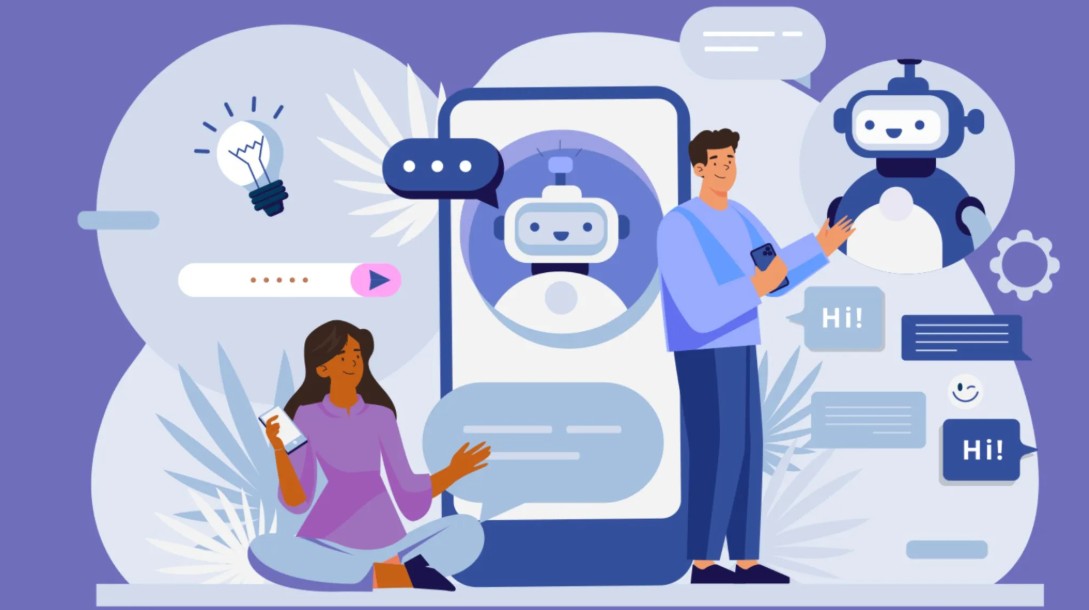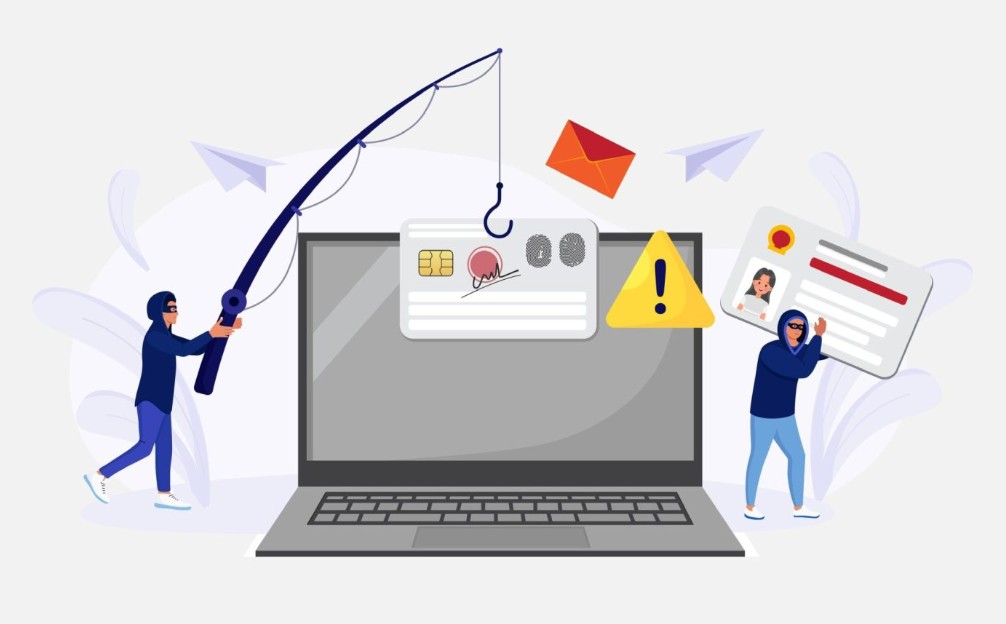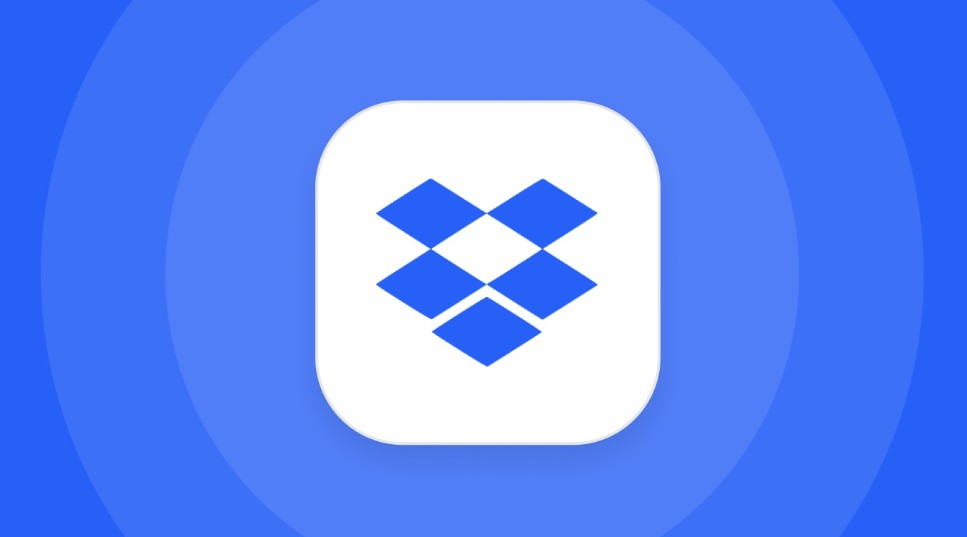Best Selling Products
OpenAI "invades" e-commerce, Google faces challenges
Nội dung
OpenAI has just launched Instant Checkout in ChatGPT, allowing users to make purchases directly while chatting without leaving the app.
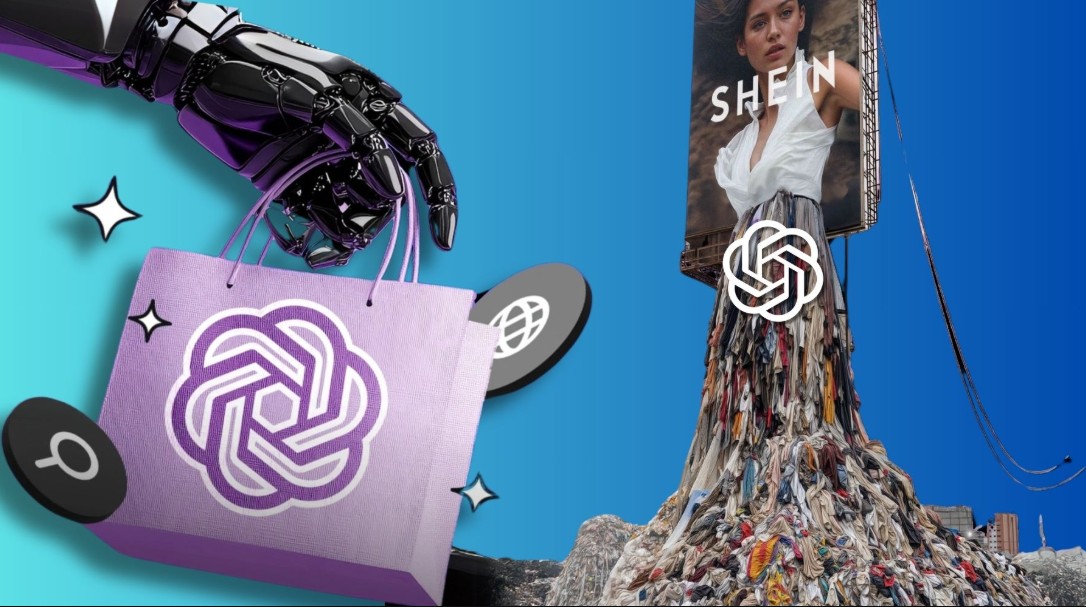
Last week, OpenAI once again made the community stir when it announced Instant Checkout : a feature that allows US users to shop directly within ChatGPT.
The unique thing here is that the entire checkout process takes place right within the chat interface, instead of redirecting users to e-commerce websites. This transforms ChatGPT from a recommendation engine to a direct sales channel, where shopping behavior can be completed in just a few steps while the conversation is still ongoing.
To make this happen, OpenAI partnered with Stripe to develop Agentic Commerce Protocol (ACP) : a commerce protocol specifically for AI. This is considered a turning point not only for OpenAI, but also for the entire global e-commerce and online advertising market. When OpenAI launched this feature, they were not only looking to expand their revenue streams from over 700 million weekly users , but also sending a clear message: their ambition to challenge Google’s dominance in the search advertising field.
1. Chatbot suggests products to “proxy shoppers”
Before Instant Checkout, ChatGPT was tested as a product discovery tool. Users asked questions, and AI responded with a list of suggestions, along with links to the retailer’s website for users to complete the transaction themselves. This way of working had many similarities to Google Search: the search engine provided the results, but the decision of what, where, and how to buy remained outside the platform.
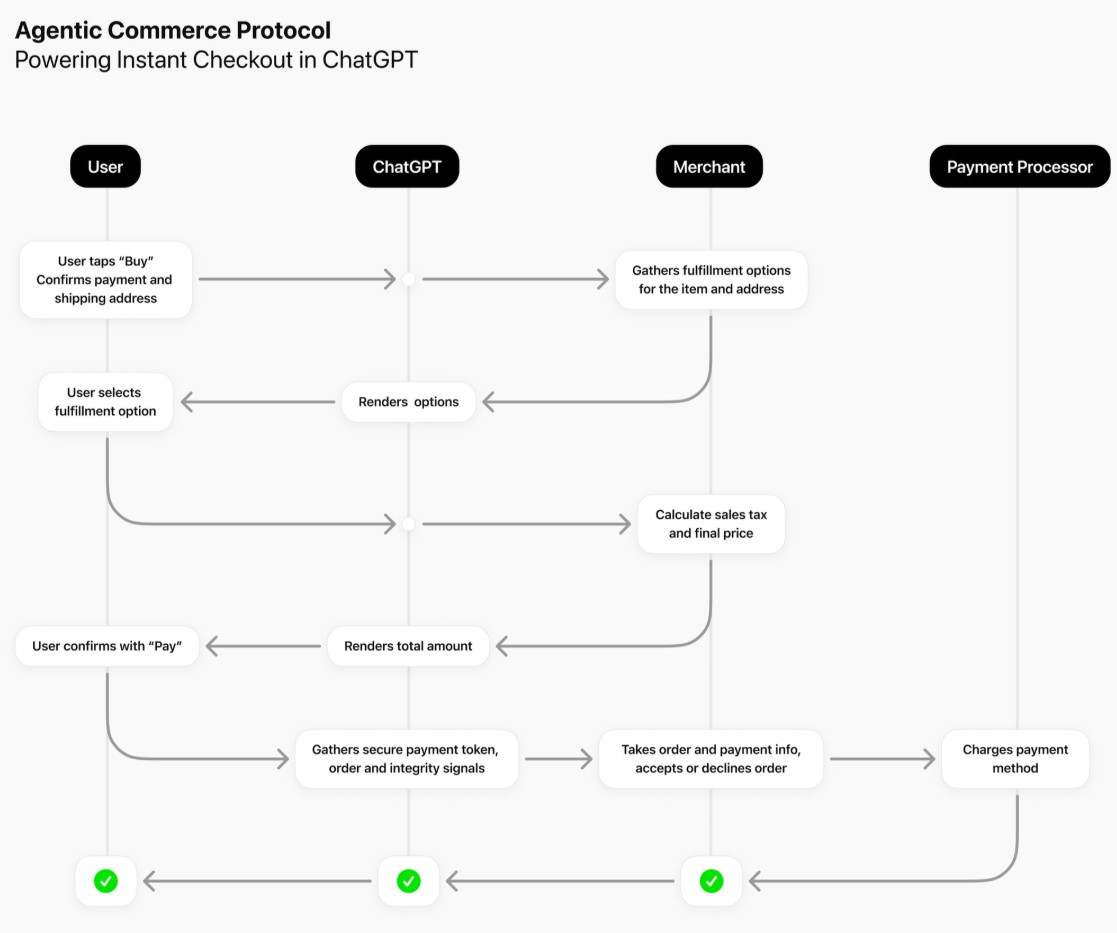
But with Instant Checkout, the experience changes completely. Let’s say a user asks, “I want to find hiking shoes under $150 that are comfortable and durable.” ChatGPT not only makes suggestions, but also provides an instant “Buy” button. With just one click, users can select a product, enter a shipping address, confirm a payment method, and complete the transaction right in the chat.
This means that ChatGPT has moved from the role of “consultant” to “buyer”. Users do not need to waste extra time, do not have to leave the application and do not have the conversation flow interrupted.
In a world where users increasingly prioritize convenience and speed, this seamlessness is a core value. It also poses a challenge to traditional e-commerce sites, which rely on attracting users to their websites to make sales.
2. Agentic Commerce Protocol Platform
Behind Instant Checkout is the Agentic Commerce Protocol (ACP) . ACP is built on an open philosophy, allowing any business, from small retailers to large brands, to integrate directly with ChatGPT.
ACP does not operate independently, but is based on the Model Context Protocol (MCP) : an open source protocol introduced by Anthropic last year. MCP allows AI models to access data directly from the business's backend system: from product inventory, prices, to order processing systems. This ensures that the information ChatGPT provides to users is always accurate and updated in real time.
One of the breakthroughs of ACP is its flexibility. Although developed with Stripe, ACP is not limited to Stripe customers. It can be extended to work with different payment processors, ensuring wide adaptability. This gives ACP the potential to become a payment standard for the entire AI ecosystem , beyond ChatGPT and potentially applied to many other platforms in the future.
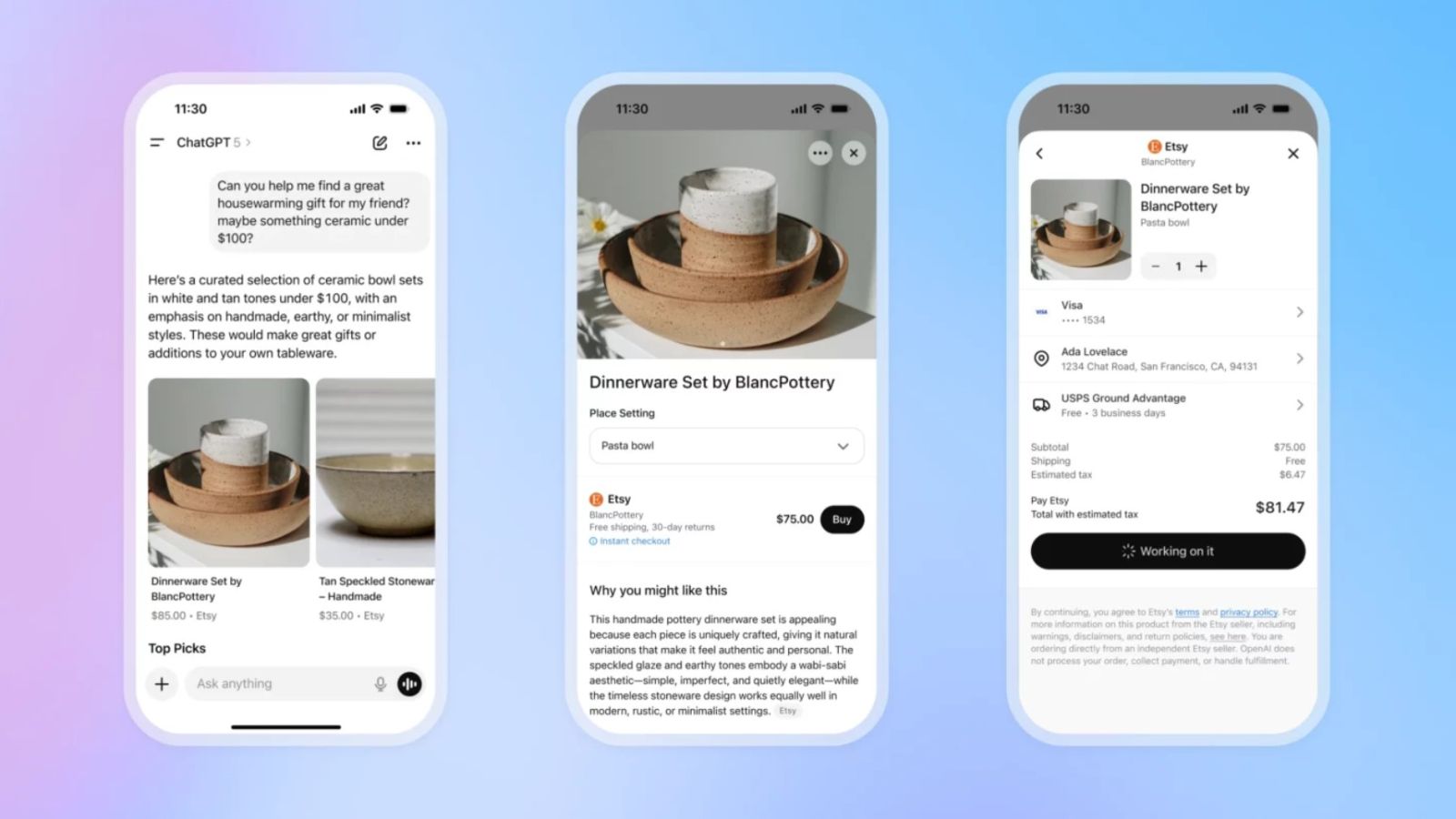
By releasing ACP as open source, OpenAI shows its ambition to shape not just a product, but a new commercial infrastructure based on AI.
3. Double benefits
With Instant Checkout, OpenAI opens up a whole new revenue stream. Every transaction that takes place in ChatGPT brings the company a small fee from the seller, a strategic move in a context where the cost of training and operating AI models is costing billions of dollars each year.
But more importantly, Instant Checkout expands ChatGPT’s reach in e-commerce. Instead of just being a search engine, ChatGPT is now the “last touch point.” As more merchants join, ChatGPT will gradually take center stage in the online shopping journey, becoming the bridge between brands and consumers.
This not only benefits OpenAI, but also strengthens the AI-driven commerce ecosystem: where commercial transactions happen seamlessly in a conversational environment.
4. Google's advertising model
For years, search advertising has been Google’s lifeblood. When users search for products, Google displays a series of ads, and retailers pay to appear at the top. Revenue from this activity accounts for the majority of Alphabet’s profits, making Google the dominant online giant.
But now, OpenAI has come up with a solution that could shake that foundation. When users no longer need to Google to find products, but instead ask ChatGPT directly and complete purchases within the conversation itself, the search advertising model is in serious jeopardy.
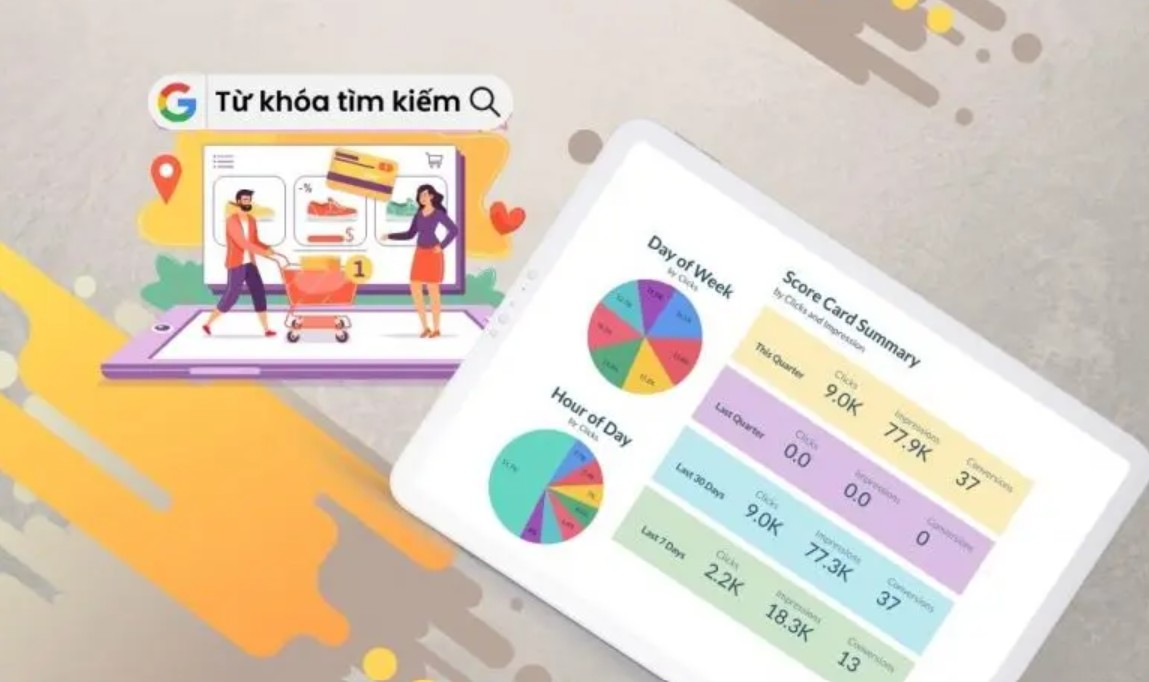
In fact, Google has also recognized this danger and is investing heavily in Gemini and AI search features. However, OpenAI's advantage lies in the fact that ChatGPT is designed around conversation, while Google still has to reconcile AI with the old advertising model. This is the difference that can decide the market balance in the future.
What makes Instant Checkout stand out is its simplicity of design. When users express their shopping needs, ChatGPT not only lists the right products but also allows them to buy them with one click. The checkout interface is clean, clearly displaying product information, costs, shipping address and payment method.
For those who have subscribed to a paid ChatGPT plan, a stored credit card can be used immediately to complete the transaction. Users can also add alternative payment methods for use as needed. The entire process is fast, intuitive, and seamless, offering a different experience than having to jump through multiple websites like before.
A common concern with commercial AI systems is the possibility of being manipulated by advertising. But OpenAI has made it clear: product results in ChatGPT are completely organic and not sponsored.
This means that the display order does not depend on the fee paid by the seller, but on objective criteria such as: price, quality, availability, seller reputation and ability to enable Instant Checkout.
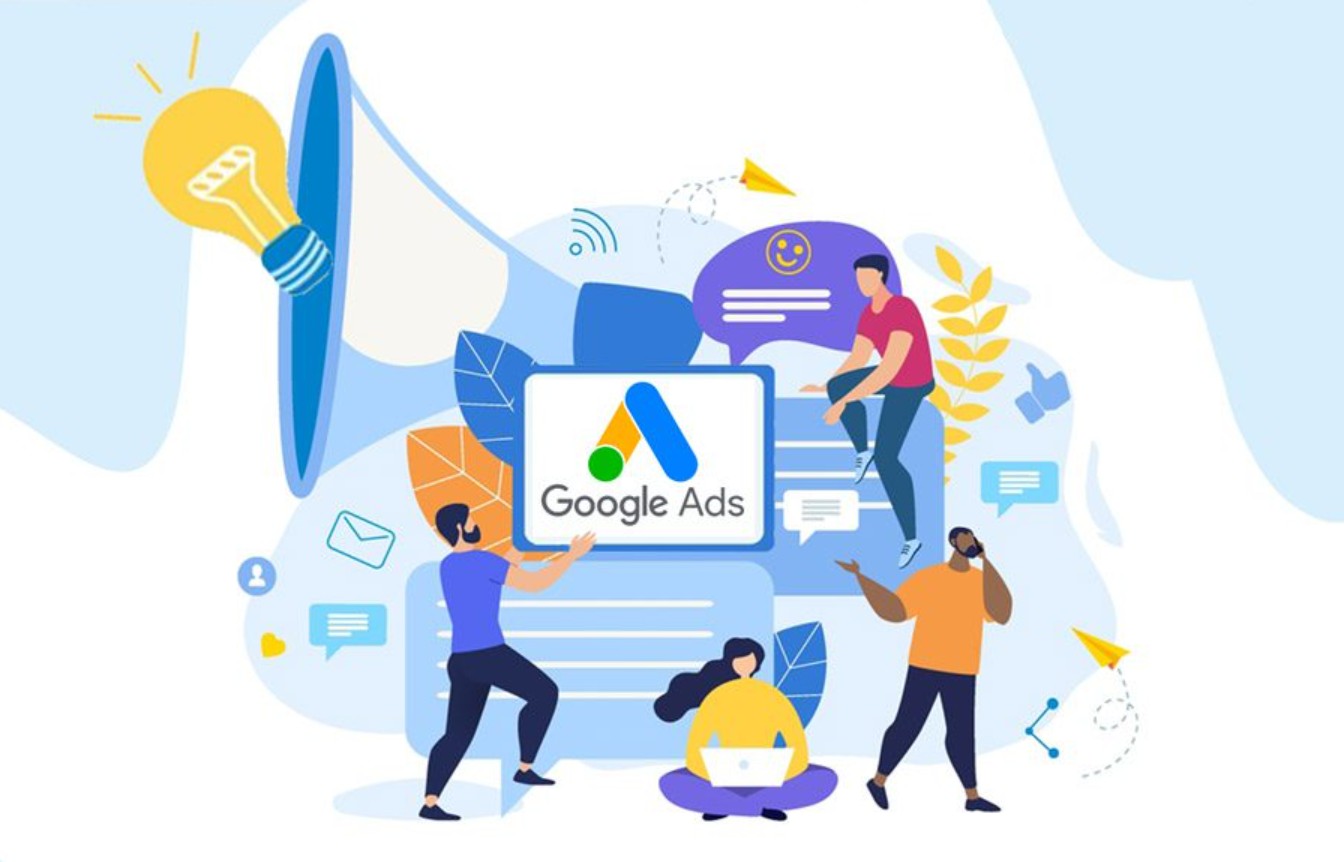
This transparency helps build trust with users, while also creating fairness for retailers, especially small businesses that don't have the budget to run ads like on Google.
5. Future AI agents automatically shop
While every step in the shopping process still requires explicit user consent for now, the future is easy to envision: ChatGPT could become an AI agent that automates shopping.
Users can set rules in advance, such as: “If the coffee on your shopping list is running low, order two more boxes” or “find a winter coat on sale under $150, if there is a promotion, buy it now.”
AI then not only suggests and waits for responses, but also proactively executes transactions. This model opens a new era for e-commerce.
The opportunity comes from ChatGPT becoming a new sales channel where brands can reach a huge number of users without depending on advertising. The ACP integration makes it easy for small businesses to join this ecosystem, expanding their market without too much cost.
However, the challenge is the change in the way users access products. When customers no longer go directly to the website, marketing strategies, interface design or user experience may have to be restructured.
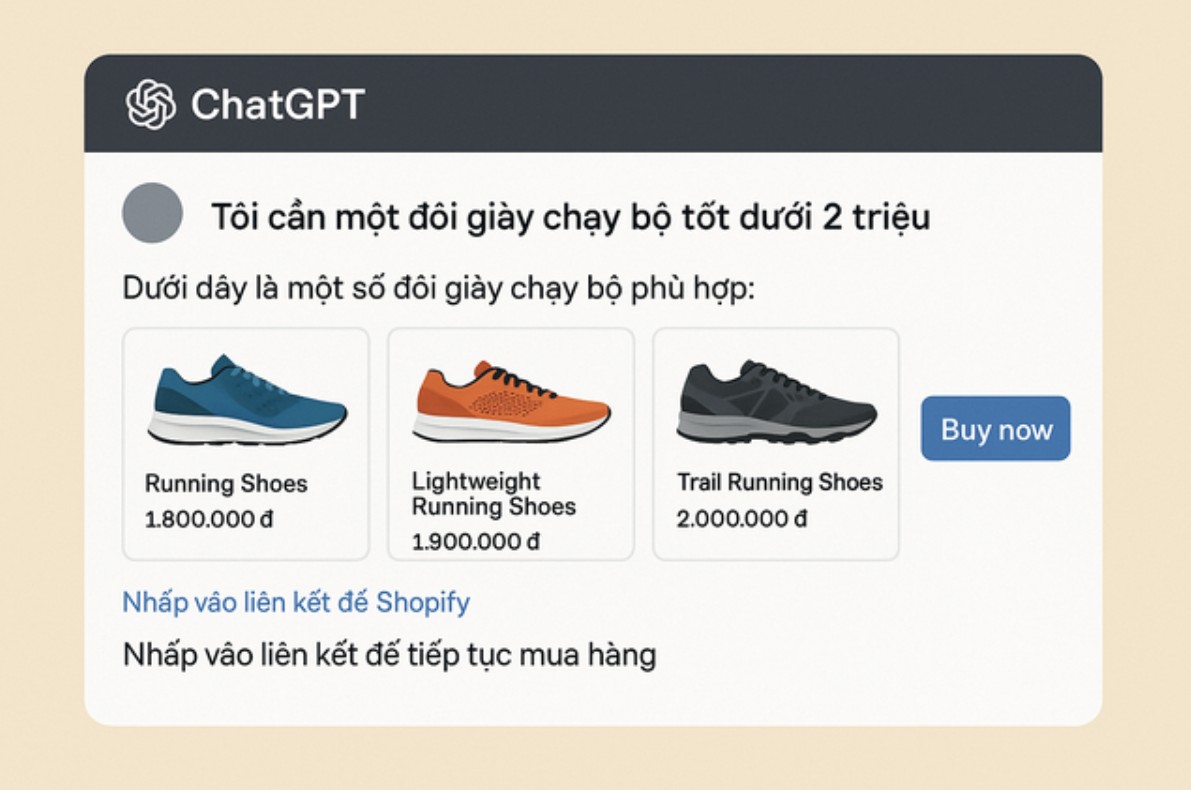
For developers, OpenAI’s announcement of open-source ACP is a golden opportunity to build new applications, tools, and services around conversational commerce. Initially, Instant Checkout only supports single purchases, but OpenAI has revealed plans to expand to multi-product and multi-geographic shopping carts. This opens the door to new application ecosystems where AI becomes the hub for transaction coordination.
6. Conclusion
The Instant Checkout feature marks a significant step forward for OpenAI. It’s not just a new tool within ChatGPT, but also a long-term strategy to diversify revenue sources, expand influence, and directly challenge Google’s dominance in search advertising. If successful, ChatGPT will not only be a conversational AI tool, but also a comprehensive conversational commerce platform : people can search, select, and complete transactions without leaving the chat window. In a world where AI is increasingly becoming a “partner” rather than a “tool,” e-commerce will inevitably change. Users will have intelligent shopping assistants, businesses will have to adapt to new distribution channels, and tech giants will be forced to reshape their strategies.









































